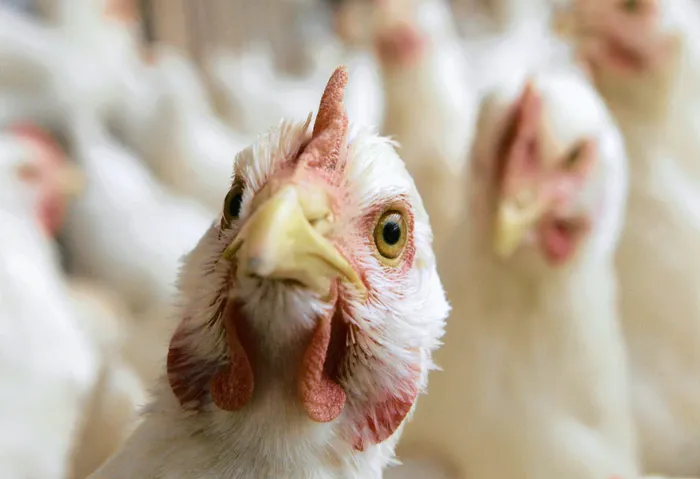
South Africa's 70 000 ton a year duty free import concession to the US has not been filled this year due to bird flu breaking out in that country, said Astral Foods CEO Gary Arnold.
Image: supplid
South Africa's poultry industry would like a seat at the table if there are any changes on import tariffs or quotas on the US imports, even though at this stage, it will be unaffected directly by a cessation of the Africa Growth and Opportunity Agreement (Agoa), said Astral CEO Gary Arnold.
Currently, South Africa allows a 70 000-ton duty-free chicken import quota from the US, but this figure barely got filled last year, and there have been no chicken imports from the US this year because of the outbreak of bird flu in the US, Gary Arnold, CEO of South Africa’s largest integrated poultry producer Astral Foods, said on Monday.
He said he was more concerned about the potential impact on the broader South African economy of lower exports to the US, due to the trade tensions and recent imposition of a 10% import duty, with the possibility that this might even rise further.
His comments come as President Cyril Ramaphosa heads a ministerial delegation for talks with US President Donald Trump in Washington on Wednesday, to reset relations between the two countries and regarding the African Growth and Opportunity Act that provided duty-free access for South African exports to the US, including cars and agricultural products.
Arnold said in an online briefing at the release of Astral interim results that the imposition of the 10% import duty meant that technically, the duty-free chicken quota fell away, but there was no certainty on this yet, and much would depend on the bilateral talks this week and the outcome of talks to renew Agoa scheduled for September.
South Africa had allowed the 70 000-ton duty-free import quota of poultry to South Africa in 2015 as part of a concession to the US, in return for broader economic benefits to be gained from the Agoa agreement.
Arnold said imported chicken currently only accounts for about 21% to 22% of local consumption, which is a far cry from the time of the imposition of anti-dumping duties and the signing of the Poultry Sector Master Plan in 2019, when imports made up more than 30% of local consumption.
The local industry had taken up that production and created new jobs since then, he said.
Questioned about the possible impact on the local market of one of South Africa’s leading producers, Daybreak Foods, being in financial distress, he said this might result in some supply constraints to the retail market. He said Astral was still seeing strong demand after it had decided last year, before the travails at Daybreak, to increase production this year.
Astral Foods’ earnings for the six months to March 31 fell after margin pressure in the poultry division resulted in operating profit falling by 50.7% to R271 million. A R2.20 interim dividend was declared. The balance sheet and cash flow were strong, he said.
“We experienced significant poultry selling price deflation which, with higher input costs, led to negative poultry margins. Astral subsidised the cost of producing chicken, as higher feed and other inflationary costs could not be passed on in selling prices due to a competitive poultry market landscape,” he said.
He said they were having to raise prices just to get to the pricing position that the group was in the first half of the last financial year, and in a position where it was not subsidising the cost of production.
Revenue for the Feed Division increased by 9.4% to R5.3 billion from higher sales volumes and feed selling prices. Sales volumes increased 5.9% - feed sales to the commercial layer sector recovered following the bird flu outbreak in the industry during the latter part of 2023.
Poultry Division revenue increased 1.5% to R8.8bn from higher sales volumes. But poultry selling prices were 3.1% lower.
This, along with higher poultry feed input costs - SAFEX yellow maize price increased by 28% to an average R5 004 per ton for the period - and an increase in inflationary operating expenses, resulted in a loss of R26 million versus a R284m interim profit the year before.
Arnold said the maize price peaked at around R5 700 per ton early this year, but had already come off to around R4 000 per ton.
“The expectation of a larger local maize crop is likely to benefit maize prices going forward. Lower poultry inventory levels should assist in recovering poultry selling prices after months of price deflation. Furthermore, Astral has increased broiler placement numbers which provides us with an opportunity to grow sales,” he said.
Visit: www.businessreport.co.za